Time reading skills Extra Challenge Worksheets for Ages 3-6
5 filtered results
-
From - To
Boost your child's time-telling proficiency with our "Time Reading Skills Extra Challenge Worksheets" designed for ages 3-6. These engaging worksheets offer advanced exercises to reinforce fundamental clock-reading abilities, ensuring your child masters hours, minutes, and the concept of time. By integrating fun graphics and interactive tasks, our expertly crafted resources make learning enjoyable and effective. Perfect for young learners eager to advance their skills, these worksheets are an ideal choice for both classroom use and home practice. Equip your child with essential time-reading expertise and set the foundation for lifelong numeracy success today!
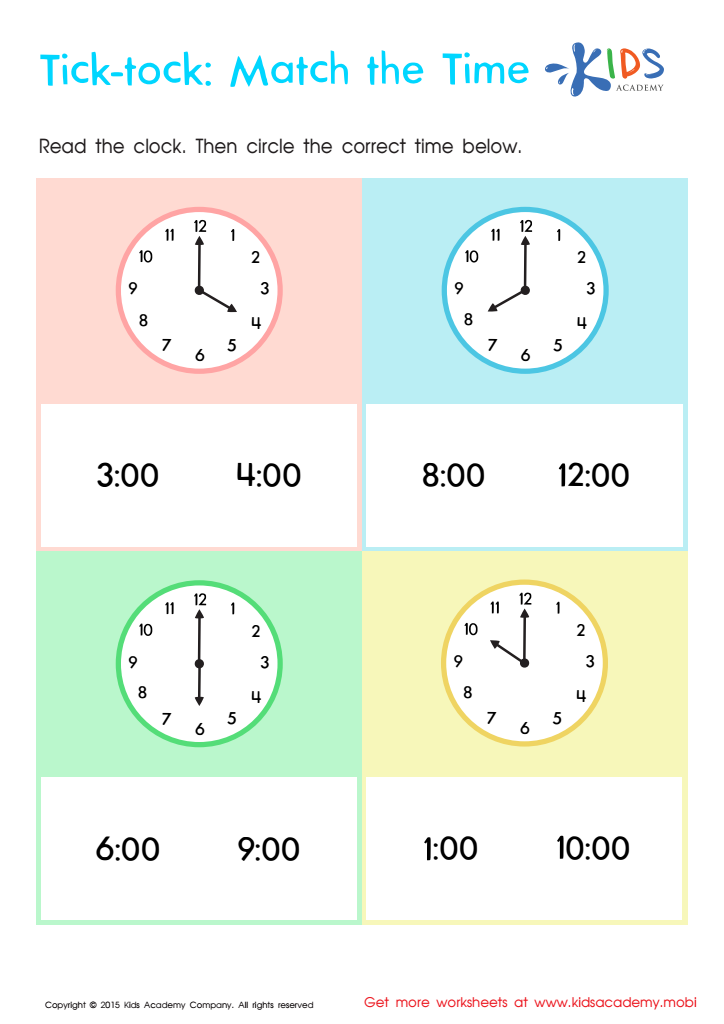

Telling The Time Worksheet: Part 4
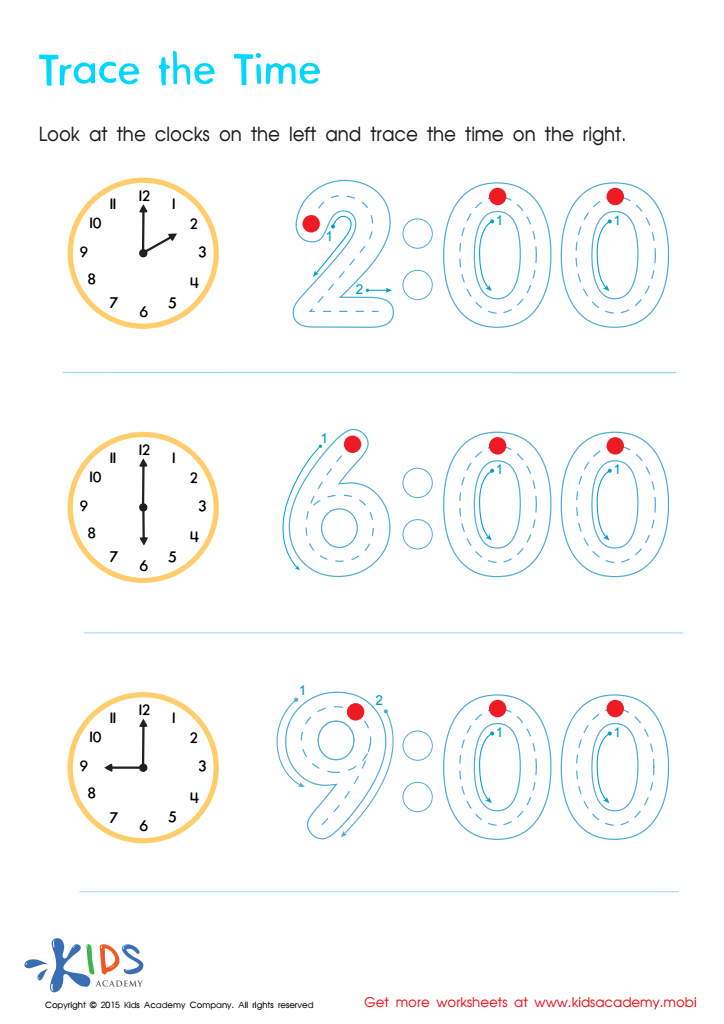

Telling The Time Worksheet: Part 2
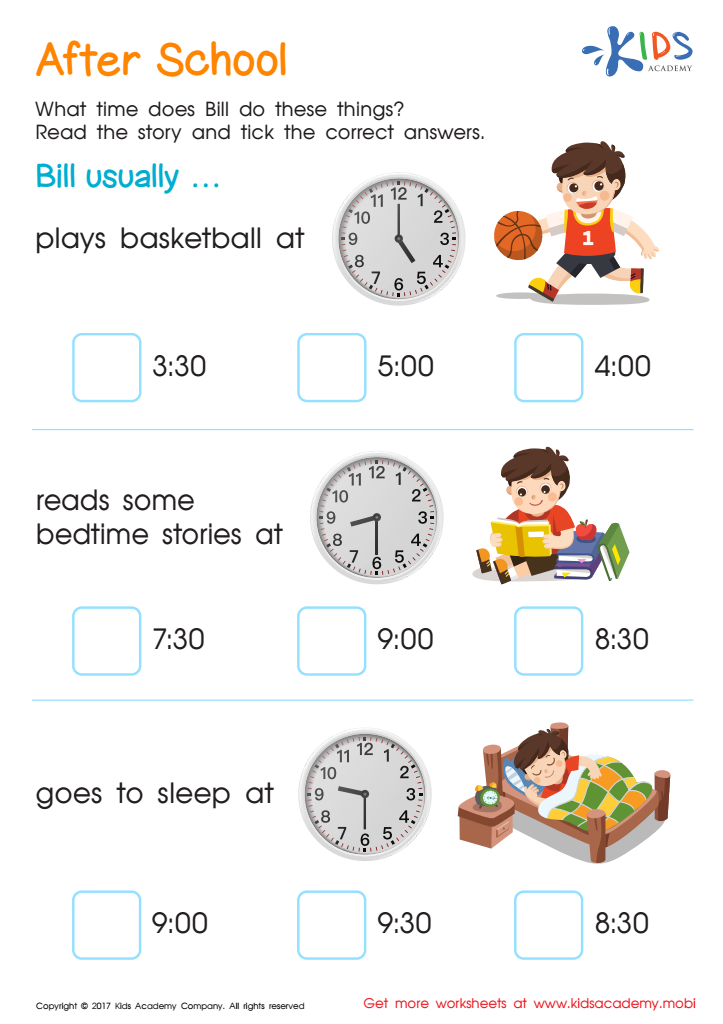

After School Time Printable
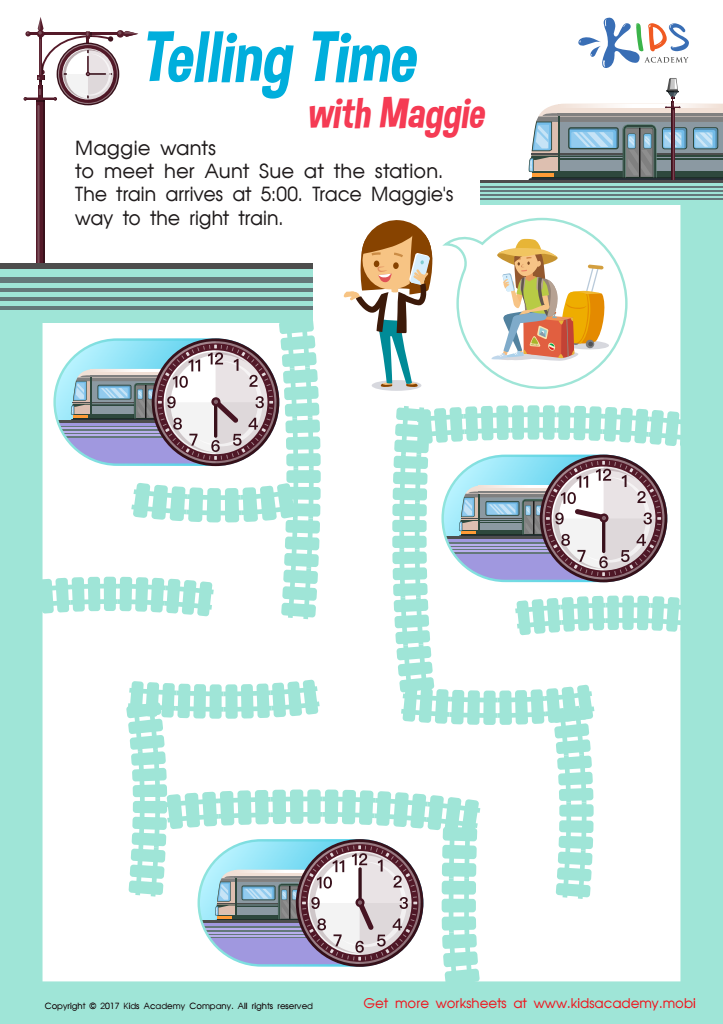

Telling Time With Maggie Time Worksheet
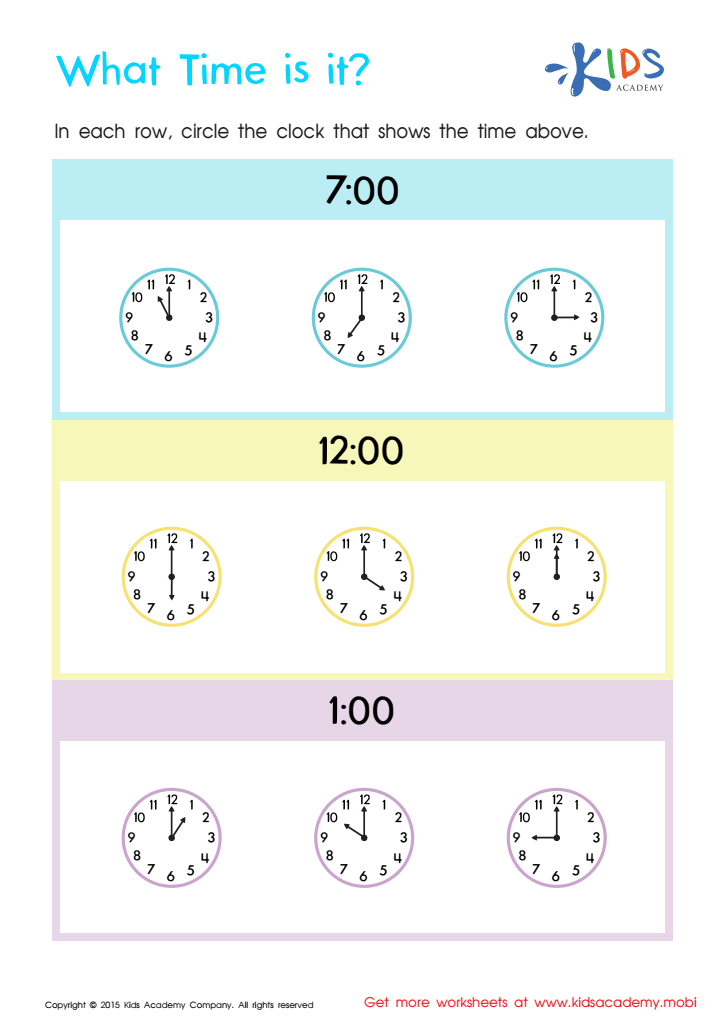

Telling The Time Worksheet: Part 3
Reading skills are foundational to a child’s cognitive and linguistic development, and prioritizing these skills at an early age can have long-term benefits. Engaging with activities like the Time Reading Skills Extra Challenge for children aged 3-6 offers several advantages.
Firstly, early exposure to reading helps in vocabulary acquisition. Young children’s brains are highly receptive, and introducing them to a wide range of words during this period can significantly boost their language development. This lays a strong foundation for effective communication, comprehension, and future academic success.
Secondly, it fosters a love for reading. Early positive interactions with books and reading activities can cultivate a lifelong interest in literature, encouraging kids to explore new ideas and perspectives as they grow older. Interactive challenges keep learning fun and engaging, making it easier for young children to associate reading with enjoyment rather than a chore.
Moreover, structured reading activities improve attention span and critical thinking. Following stories and linking words to pictures helps children develop better concentration and analytical skills. They learn to make connections, predict outcomes, and understand the sequence of events.
Parents and teachers should care deeply about these aspects because they not only enhance academic performance but also contribute to overall cognitive, emotional, and social development. Early investments in reading skills yield lifelong educational and personal growth opportunities.
 Assign to My Students
Assign to My Students





















